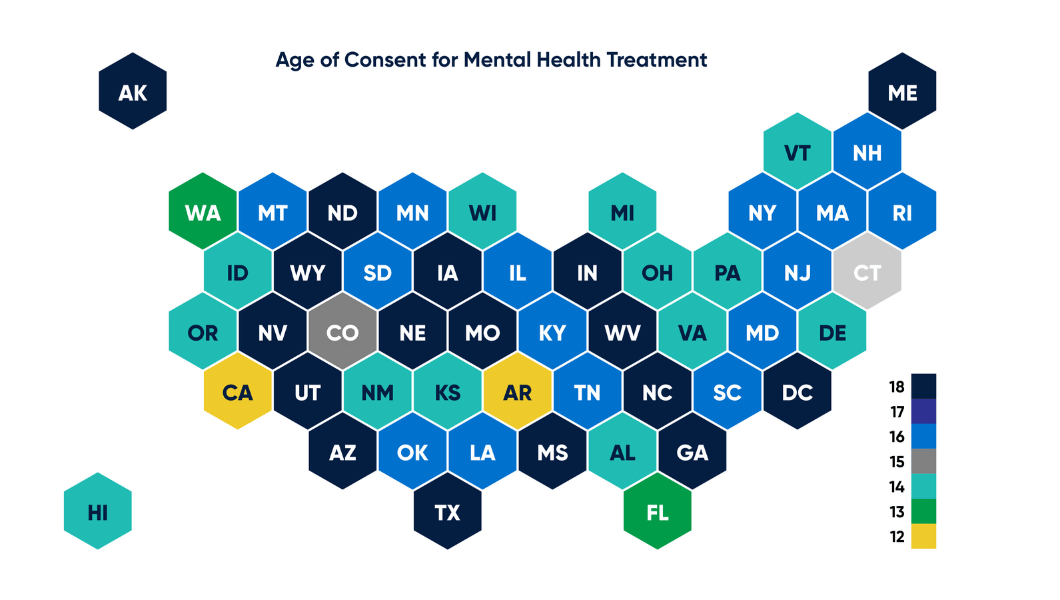The Impact of Minor Consent Laws on Healthcare Access and Utilization
By Lauren Ranalli, MPH | August 6, 2024
Director of Communications and Public Affairs, ETR
Over the past few decades, minor consent laws have expanded significantly across the United States. These laws, in which a person under the age of 18, can independently consent to healthcare services including sexual and reproductive health, alcohol and drug abuse treatment, and mental health services, have shifted the discussion around healthcare access and utilization among adolescents.
Services Covered by Minor Consent Laws
Minor consent laws for reproductive and sexual health services vary by state and can allow adolescents to access specific services without parental consent, including:
- Sexually Transmitted Infection (STI) testing, treatment, and/or prevention
- HIV testing, treatment, and/or prevention including access to PrEP
- Contraceptive services
- Prenatal care
The age of consent for mental health counseling, treatment, or drug and alcohol treatment also varies by state.

Benefits of Minor Consent Laws
The expansion of minor consent laws has shown a number of benefits, including:
- Increased Access to Care: One of the primary benefits of minor consent laws is the increase in access to healthcare services. According to the American Academy of Pediatrics, “adolescents are more likely to seek healthcare for potentially sensitive issues such as sexuality, mental health, and drug use if they can provide their own consent and be confident that their health information is private.”
- Improved Health Outcomes: By reducing barriers to care, early access to mental health services can improve the diagnosis and management of depression and anxiety. Similarly, access to contraception and sexual health services can reduce the incidence of unintended pregnancies and sexually transmitted infections (STIs).
- Promotion of Autonomy and Responsibility: Allowing minors to consent to their own healthcare can promote a sense of autonomy and responsibility. It encourages young people to take an active role that can have long-term benefits in managing their health.
Supporting the Role of Parents and Caregivers
While minor consent laws empower adolescents, the role of parents and caregivers in their children's healthcare remains crucial. Providers and health educators can encourage open and honest communication between adults and adolescents around confidential services and routine medical care. Some recommended resources for supporting these conversations include:
Teen Speak: A guide to understanding and communication with your teen by Dr. Jennifer Salerno
Taking the First Step… Out of the Exam Room: Helping Your Teen Navigate Healthcare from the Adolescent Health Initiative
How to Talk with Teens About Over-the-Counter Birth Control Pills from ETR
3 in 30 webinar: How to Talk with Teens About Vaping from ETR and PAVe (Parents Against Vaping E-cigarettes)
Cracking the Code: Master the Art of Teen Speak Online Course offered by Possibilities for Change.
Motivational Interviewing Training for Empowering Youth (MITEY) Online Course offered by Possibilities for Change.
Lauren Ranalli, MPH (she/her) is the Director of Communications and Public Affairs at ETR. She is a public health professional with over 20 years of experience in adolescent health, health education, and communication strategies.




